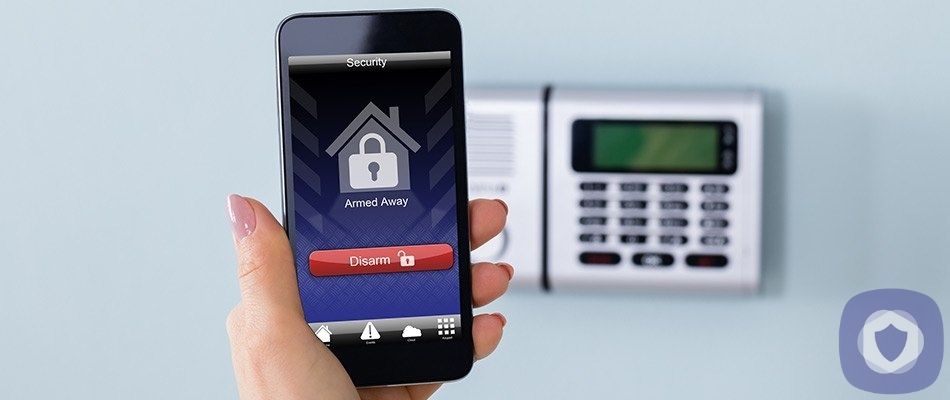When you’re deciding which home security system to go with to protect your family and home, one of the first questions you’ll need to answer is whether you want to go with a wired or wireless one. More and more people are opting to go with a wireless system because they prefer a system that is more tech-friendly, portable if needed and updated more frequently. But there are also some real security risks that you should be aware of when it comes to wireless systems. Make sure you understand the cons of wireless security, in addition to the pros, so that you’re well-equipped to make your decision.
What is a wireless home security system?
A traditional wired security system is exactly what it sounds like: A hardwired system where all of the components communicate with each other through wiring. A wireless home security system can be wireless in two different ways. Either the control panel and the other components like motion detectors are wireless or the control panel and monitoring system utilize wireless technology. Either way, there are some unique issues with a wireless home security system you should know about before taking the leap.
The potential risks of having a wireless security system
While more advanced technology may be great in some cases, there are potential downsides to having wireless technology for your home security system. They include:
Hacking: Some career criminals are pretty smart and have learned to adapt right along with the changes in home security. In fact, they have learned how to successfully hack into home security systems in order to stall alarms and even disarm them.
Battery life: With traditional wired systems, you don’t have to worry about changing batteries. With a wireless home security system, they run on batteries. Now, this doesn’t mean you’ll be changing them out often, but it is important to stay on top of the battery life. If you aren’t someone who stays on top of things like this and don’t think you can remember to change the batteries, you’re in trouble, since a wireless home security system will be rendered completely useless if the batteries run out.
Network problems: If you are constantly experiencing wi-fi problems or system outages, keep in mind that this will greatly affect a wireless home security system. When your network goes down, your wireless system can go out as well. If you decide to go with wireless security, ,make sure that your service is consistently reliable.
Signal interference: If your wireless home security system uses radio waves to communicate, it’s possible you could experience interference due to other devices nearby. For example, a baby monitor could cause a false alarm for your system if it communicates with this technology.
How to keep your wireless home security system safe
If you’re comfortable with the risks of a wireless home security system, there are some steps you can take to minimize some of the risks associated with this type of technology.
Professional installation: Techs who know the ins and outs of wireless security systems can be an asset when it comes to installation. Although many people choose a wireless system for its DIY aspect, a tech might be able to install components in areas of less interference so your wireless system can work the best it possibly can.
Minimize automation: If you have a wireless security system and you’re nervous about hackers, minimize the amount of automation you use in your home. For example, if you have a wireless home security system, you may not want to use an automated lock. If a thief hacks your system and renders it useless, a traditional lock will at least have a better chance of keeping the bad guys at bay.
Protection from hackers: We use anti-virus software to keep our home computers safe from hackers, so you should take steps to protect your wireless home security system too, including:
- Securing routers
- Using encryption software
- Regularly change passwords
- Keeping your wireless system updated
Talk to your provider: If you’re in the market for a wireless home security system, you can bet providers know about the potential risks involved. Ask the company you are thinking about purchasing from about their security tactics and what type of encryption they use to secure the system. Figure out which company provides the most safety for your home before making a decision.
Wrapping up
While having any home security system is better than nothing, it is important to know the risks involved in installing a wireless home security system. If you live in a home with unreliable broadband, or don’t think you can properly minimize the risk of hackers, it may be a good idea to strongly consider a traditional wired security system to avoid potential risks.
This article has been reviewed and approved by Officer Banta.

Officer Banta is the official SecurityNerd home security and safety expert. A member of the Biloxi Police Department for over 24 years, Officer Banta reviews all articles before lending his stamp of approval. Click here for more information on Officer Banta and the rest of our team.

